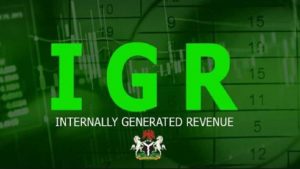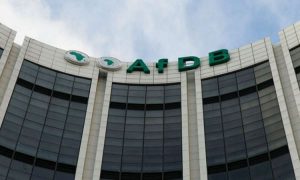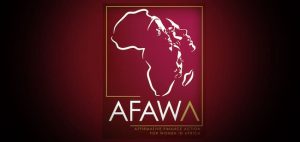BY BEN EGUZOZIE
-
Survey shows revenue expands 30% over 10-yrs
-
HDI’s inadequate response to 1% IGR rise
-
Citizens not getting value for taxes
-
Most states’ IGR are wasted, unproductive
An appreciable rise in internally generated revenue (IGR) among sub-national governments in Nigeria following marked improvements in the efficiency of collection has sadly failed to translate to improvements in the welfare of its citizens, the results of a 10-year survey on the annual average growth (AAGR) in states’ IGR have revealed.
The survey report, titled, “The IGR Initiative,” released January this year by Subnational IGR Informer, and produced by a team led by Martin Ike-Muonso, a professor of economics with interest in subnational government IGR growth strategies, and a columnist with Business A.M., also indicated that, while the various states’ revenue collection agencies have been efficient at pressing out tax and non-tax revenue compliance from their economic agents, multidimensional poverty have increased as the state governments expanded their IGR by 30 percent on a 10- year annual average growth rate.
“The multidimensional poverty window is the flip view of the human development index. Both indices facilitate our understanding of how well the government has performed on its duty of enhancing citizens’ well-being. We expect that subnational governments growing very quickly in the past ten years on their IGR mobilisation should have used the same to tame the incidences of poverty. We also expect the same for State governments collecting 1% or more of their citizens’ total output as revenue. Contrary to our expectations, multidimensional poverty in Nigeria appears to be positive, albeit weakly correlated with the annual average growth rates of the IGR of subnational governments in Nigeria,” the report said.
The nation’s data agency, the National Bureau of Statistics (NBS), informed late last year (2022) that some 133 million Nigerians were submerged into multidimensional poverty.
IGR growth not a great driver of HDI
Sadly too, the survey found that the human development index (HDI) of the various states had also exhibited an “inadequate response, growing only by about 0.86% for every 1% increase in subnational IGR. It concluded that IGR growth may not be a great driver of HDI among Nigeria’s sub-nationals, if good leadership was absent from the indicators.
Additionally, the report revealed a humongous subnational IGR wastage, and potentially unproductive, which grew at approximately a 15.3 percent rate over the period reviewed. The direct interpretation of this is that the citizens of Nigeria’s 36 sub-nationals have not been receiving value for their tax compliance over the 10-year period reviewed.
From the IGR expansion versus people’s economic wellbeing survey, only 30 percent of Nigerian states were able to collect IGR above 15 percent for the period from 2011 to 2019, and also above 1% (>=1%) share of their state GDP. The states are Jigawa, Ebonyi, Ogun, Kwara, Enugu, Oyo, Lagos, Plateau, Kaduna, Borno, and Nasarawa.
The report further found that Delta and Rivers states, two of Nigeria’s leading oil producing states, which are able to mobilise more than 1.2 percent of their states’ economic output as IGR, are sadly not growing by up to 15 percent.
“It is reasonable to expect that the (two states) should provide comparably more well-being to their citizens,” the report stated.
It also observed that: “There is a conjured feeling of the government robbing its citizens when they do not receive the quantum of well-being corresponding to their payments. An excellent way to understand this situation better is to determine whether increasing rates of IGR receipts are consistent with improvements in citizens’ well-being. Analysts have relied on measures of the quality of human development, prosperity, multidimensional poverty, and ease of doing business, among others, to appreciate the level of general well-being or its substructure of good governance”.
Citizens’ trust critical for tax compliance
Noting that citizens’ trust was paramount in securing tax compliance, the Subnational IGR Informer stated that sadly, more than 90 percent of subnational governments in Nigeria fell within this category. It further noted that benchmarking the internal revenue service’s (IRS’s) poor performance in technology adaptation and their parent governments’ weakness in the provision of public goods, ease of doing business, and the quality of human development against their internally generated revenue increases, makes the question of citizens’ trust resonate.
Rapid IGR rises have not improved citizens’ welfare
The results of the survey also showed that 21 subnational governments (or states) in Nigeria are below average in revenue (IGR) collection and distribution. The states are: Abia, Adamawa, Akwa Ibom, Anambra, Bauchi, Bayelsa, Benue, Cross River, Ekiti, Gombe, Imo, Kano, Katsina, Kebbi, Kogi, Niger, Ondo, Sokoto, Taraba, Yobe, and Zamfara.
Also, approximately 58.3 percent of the states in the country fall below the average on IGR per capita measure. Surprisingly, with more than 20 percent annual rate of growth of their IGR, Ekiti, Sokoto, Zamfara, Ondo, Taraba, Kogi, Bauchi and Kano all fall within the cluster of states not doing averagely well on the IGR per capita measure.
The finding raises questions about how well the solid 10-year IGR average growth has impacted the well-being of the states’ citizens, assuming they share all revenue collected. The IGR per capita dimension categorised the states into three groups.
Lagos was adjudged by several multiples as the best performer on the IGR per capita indicator, thereby categorised in the first cluster.
However, although Lagos State government’s rate of IGR growth was below the national average, it was nevertheless, more than an average performer in collection efficiency using the IGR-TO-GDP ratio criterion, the report said.
The next set are state governments that are quickly growing their IGR, as well as being reasonably efficient in their collection, and who are more likely to be above-average performers in sharing the welfare derivable from it. The states that fell into this cluster are: Ebonyi, Jigawa, Nasarawa, Ogun and Osun.
On the flip side are states such as Benue, Cross River, Yobe, and Abia, identified as “critically below-average performers on the IGR per capita indicator,” the report anchored by Martin Ike-Muonso stated.









